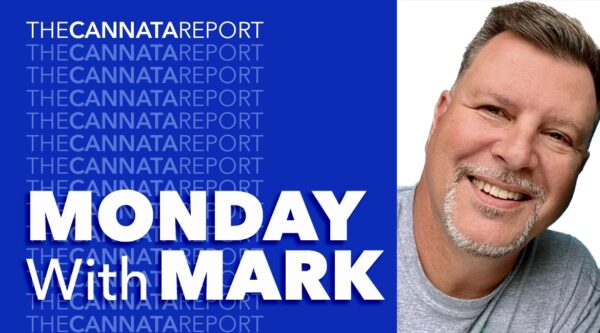HP sets the record straight on its new partner engagement program.
On November 2, 2020, HP’s new partner engagement program, HP Amplify, went live. Then came 2021, and HP partners—primarily the U.S. independent dealer channel—began voicing concerns about certain elements of the program. Those concerns have not only been shared with HP but also with The Cannata Report. How legitimate are those concerns, or is it a simple misunderstanding?
The goal of HP Amplify is to drive dynamic partner growth and deliver consistent end-customer experiences. HP is encouraging its partners to move away from transactional relationships that are primarily product-focused and toward outcome-based, services-led engagements. Perhaps the best way to explain the objective of the program is from an Amplify FAQ:
Our ultimate goal with the new program is facilitating HP and our partners to be successful in creating the best possible customer experience—and to be prepared for where the customer journey demands we go next. The program incentivizes partners based on more criteria than just sales revenue. HP Amplify will also measure rewards based on new performance indicators, including investing in and improving digital skills, service delivery capabilities, e-commerce and omnichannel experiences, and secure data collaboration. HP Amplify breaks new ground in analytics and insights, differentiating the program from those offered by other vendors.
The program consists of two tracks—HP Amplify Synergy and HP Amplify Power. Partners can select the track that best suits how they prefer to work with HP. Synergy is the introductory track. According to the HP Amplify FAQ, partners in this track can leverage “HP’s channel ecosystem with a minimum threshold sales commitment or via HP certifications.” The Power track requires partners to collaborate more closely with HP. This, according to HP, will yield a greater return on the partner’s investments through higher rewards, data insights, sales and tech resources, and marketing support that can reportedly drive new sales and renewals.
To Whom It May Concern
It’s a given that segments of the U.S. independent dealer channel have had a love-hate relationship with HP stretching back years, and HP Amplify seems to have unintentionally stirred the pot. The idea of sharing customer names and data with vendors is anathema to many dealers. This condition has some dealers speculating that HP is positioning itself for a direct play. Other dealers lament that the program will make it more difficult for them to sell compatibles. As one dealer noted to us, “that would kill my MPS business.”
HP has made an internal decision not to release a public statement on the various issues. Instead, it is speaking directly to concerned partners, and presenting webinars and videos to address concerns.
We spoke with Luciana Broggi, senior vice president and head of Global Route-to-Market Centre of Excellence for HP, about the controversy around Amplify. Through the first six months there has been a high level of engagement from partners. Meanwhile, concerns expressed by U.S. dealers are filtering to Broggi, who is on a mission to address misunderstandings about the program. Those discussions have made a difference for some partners, including some of the most reluctant. Broggi acknowledged some partners might have had a bad experience in the past with HP, which may have influenced their perception of the program.
“When you transform a program that we had for many years and that worked well for us and for the channel partners, and implement something new, you expect some sort of pushback,” she said. “We’re really taking the time to talk to the channel partners because we do care about the channel partners and we want to see them be successful in the future. I strongly believe that’s what we are doing, even if it seems painful in the short term, and any change and any additional investment will help us be stronger together.”
Share and Share Alike
Arguably, the most controversial aspect of the Power track is the data sharing, positioned as a high-level collaboration between the partner and HP. The data will track customer purchasing behavior, online sales mix, and inventory levels. Partners who participate in the Power track and share data will receive special pricing, access to a broader portfolio, and higher compensation. All data is subject to privacy and security measures, and is intended to help jointly drive improved customer outcomes, according to HP. If a partner prefers not to share their data, they don’t have to participate in the Power track. Those partners will still be able to engage with HP as in the past and continue to source HP products through distribution and resell them to their customers. However, Broggi emphasized that partners who choose to share their data will have a much more strategic relationship with HP. For example, dealers who share data can engage in performance comparisons with other partners in the program to better gauge their overall performance?
HP contends this program will significantly impact smaller partners who may not have access to data such as buying habits, seasonal trends for supplies, vertical markets, or financing. This information will be aggregated and the partner presented with predictions and information that can be used to enhance customer relationships. For example, the data could help identify when a particular customer is ready to invest in products based on past purchasing behaviors. Partners also receive information about when the warranty expires on their customers’ products.
“Then, they can go back to the customers and offer extended warranty terms,” said Broggi. “We even give them ideas about the best products that they can sell in terms of services. They can take this information and share it with their sales teams and be much more effective.”
For dealers concerned that Amplify is too complex or will add to their workload, HP is willing to work with partners who need assistance on the back end to implement the data sharing solution to extract the data from their systems.
Broggi draws parallels between Amplify and the data an online retailer such as Amazon has about its customers. That’s something a traditional channel typically doesn’t have. The Power track of Amplify seeks to correct this.
But as Broggi noted earlier, change is difficult. In a world where data is everywhere, as is access to it, dealers should not dismiss the ability to take that data and use it to enhance customer relationships and sell more product. “Customers today are looking for an offer that is tailored to their needs,” said Broggi. “They expect us to know what they have, when they bought it, and what they need. If we have that information aggregated, we can do a much stronger job with a customer.”
She further emphasized that HP is compliant with any confidentiality requirements across the board around data sharing. “We do everything in our power to protect our data. We have a lot of that information already that we either collected from the partner on the financing for special pricing, or because we have end-user salespeople working with the partners on those accounts. We combine the data we collect with our own data. When we discuss this with partners, it becomes very concrete. I’m not saying we convinced 100% of them because that would be impossible.”
BTA General Counsel Bob Goldberg has found himself in the middle of the fray. He is telling dealers that if it were him, he wouldn’t share customer data with HP and suggests dealers find another A4 provider.
We spoke with a dealer off the record who is participating in the Amplify Power track who has had his issues with HP but has shared his data consistently with them for several years on the image and print side, albeit reluctantly. “It’s not fun. My biggest competitor with HP is HP’s direct team and their online presence.” Despite that observation, he doesn’t believe HP has used his data to go direct to the customer.
Another dealer who is participating in the program offered this comment about the data sharing: “HP should be giving us the tools to be able to do it and trust us with the information without giving them a customer name. Period.”
Direct Concerns
Dealers burned to no end by OEM direct branches are concerned that HP wants to go direct. Broggi dismissed that notion. “Today, 88% of HP’s sales are through the channel,” she said. “When we look at print, we are about 90% indirect sales. My discussion with our partners is, we would be absolutely crazy as a company to jeopardize the biggest part of our business and the dependency we have on our channel.”
Broggi can’t guarantee that this will never happen because HP is occasionally approached by customers who would prefer to have a direct relationship with HP. But as a long-term strategy, she says that is not the plan.
No E-commerce Site Required
The Cannata Report received an email from a dealer lamenting that one of the requirements for participating in this program was having an e-commerce section on its website and shared a clause from the agreement. According to Broggi, the clause cited was taken out of context.
“E-commerce, and therefore, the maintenance of a functional website, is in no way a requirement to participate in the HP Qualified Distribution Network,” she explained. “The terms and conditions referenced in the clause are intended only for partners who sell HP products online. This specific clause is included in section 5.4 of our HP Print and Supplies Quality, Customer Service and Online Sales Policy standard terms and conditions, posted on the HP Partner Portal. We value our brick-and-mortar partners and understand these industry standards do not apply to their business models, hence the requirement for online partners only.”
Killing Compatibles and Auto-Toner Replenishment
In response to the dealer who speculated that HP wants to kill the compatibles market, Broggi acknowledged—as any print hardware manufacturer would—that HP wants to sell HP products.
“When we sell the whole portfolio of HP products, the printer, and the original supplies, and with the level of technology we put in our supplies, we give the customer a much better experience,” said Broggi. “It’s [an experience] that’s more sustainable and more secure because we have security in the cartridge and at the toner level. So, our value proposition is stronger end to end.”
We’ve also heard from a dealer concerned about automatic toner replenishment with HP shipping toner directly to the customer. According to HP, automatic toner replenishment is not part of the Amplify program.
Future Shock and Generation Gaps
Could the reactions to HP Amplify be the result of future shock? The term “future shock,” as described in the 1970 book of the same name by Alvin Toffler, is the perception of “too much change in too short a period of time.”
Digital transformation, data sharing, e-commerce, you name it—any or all of these can trigger future shock. HP can not dismiss the concerns expressed about the Amplify program and seems to be making every effort to address partner concerns. Business is changing, and technology companies are driving much of the change. The way many companies conduct business today is not the way they conducted business a decade or more ago. HP Amplify is just another example of how industry is changing, at least for those who want to participate in this change.
But let’s also look at another issue that could explain some of the negative reactions to this program—a generational disconnect. The dealers who have reached out to The Cannata Report are those who have been conducting business the same way for decades. Now, HP comes along with a new program asking dealers to keep pace with contemporary business practices and share data as part of a new program to help transform their business, and it’s understandable there is going to be some resistance. As one dealer responded when asked if the pushback is generational, “I never thought about that, but it could be.”
Future generations of imaging technology sellers, and buyers accustomed to Amazon and other e-commerce platforms, will likely view the current concerns differently than today’s generation of sellers and buyers. As buyer expectations evolve, it’s only natural that sales models and programs will transform as well. Be prepared because HP’s Amplify program is only the start.
Access Related Content
To become a subscriber, visit www.thecannatareport.com/register or contact cjcannata@cannatareport.com directly. Bulk subscription rates are also available.




